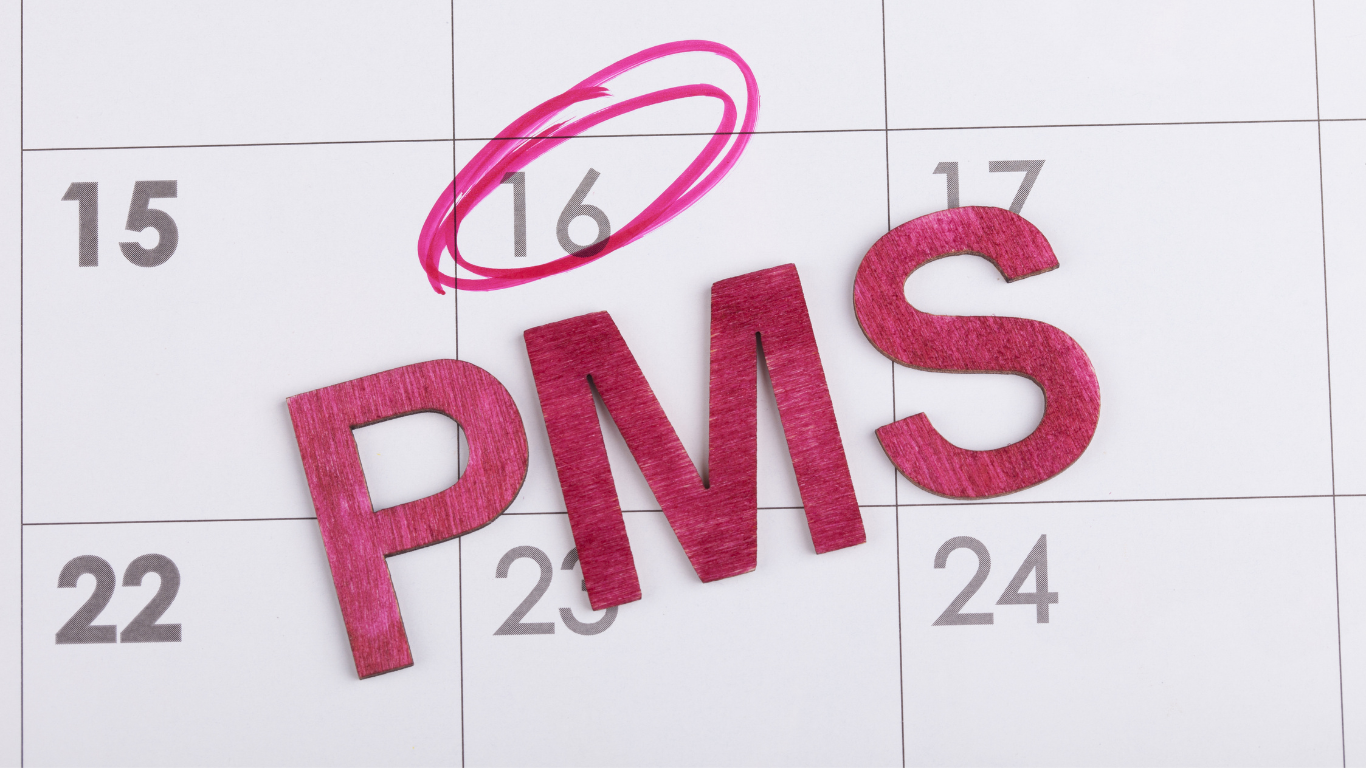
There are a few different approaches to manage PMS symptoms, including pharmacological and non-pharmacological methods. These include both hormonal and non-hormonal medications, as well as using a targeted supplement for PMS and making dietary changes that support hormone balance.
Pharmacological Treatment Options
Non-Hormonal Methods
Selective Serotonin Reuptake Inhibitors (SSRIs) are a non-hormonal treatment often used to increase serotonin in the brain. SSRIs are frequently used as a first-line treatment for severe PMS. There are mixed views on whether SSRIs should be taken in the luteal phase (two weeks before the period) or continuously, some research suggests they may be more effective when taken continuously.
Hormonal Methods
Hormonal methods include the use of oral contraceptives, gonadotropin-releasing hormone analogues (GnRH), and danazol.
Hormonal Contraceptives
The combined oral contraceptive pill can suppress ovulation and stabilise hormone levels. This may improve overall premenstrual symptoms and PMDD. However, the effectiveness can vary depending on the specific formulation.
Some individuals report mood-related side effects, with research highlighting a potential link between hormonal contraception and depression. Intrauterine devices (IUDs) release progestin into the uterus, but researchers have conducted limited studies on their impact on PMS.
GnRH Analogues
GnRH (gonadotropin-releasing hormone) analogues work by temporarily stopping ovulation and periods. GnRH analogues temporarily induce a menopausal state, which can cause menopausal symptoms and aren’t suitable for long-term use. Clinicians reserve them for severe cases of PMS or PMDD, as they are not a first-line treatment
Danazol
Doctors sometimes prescribe low doses of danazol, a medication commonly used for endometriosis, to treat severe PMS. When taken during the luteal phase, it appears to relieve only breast pain and may cause permanent side effects
Other pharmacological treatments may include anti-inflammatory medications to ease symptoms such as cramps, headache, back pain and tender breasts.
PMS Supplements
Supplements and dietary habits can form an important approach to PMS. When chosen based on evidence, a high-quality PMS supplement can help reduce both physical and emotional symptoms.
Calcium
Studies have found that supplementing with 500–1000mg of calcium may reduce fatigue, appetite changes, and depressive symptoms associated with PMS. Serum calcium levels may also be lower in individuals who experience PMS more severely.
Calcium and Vitamin D
A 2019 systematic review found that people with low levels of calcium and vitamin D often experienced more severe and frequent PMS symptoms. Supplementing with calcium and/or vitamin D reduced both physical and psychological symptoms.”
However, the review didn’t conclude an agreed upon dose of calcium and vitamin D, but it found that the combination of calcium and vitamin D was more effective than either alone.
Vitamin D
A randomised controlled trial found that high-dose vitamin D (50,000 IU) improved physical and mood symptoms in women who were deficient in this nutrient.
Magnesium
Many experts recommend magnesium as a PMS supplement due to its potential role in easing muscle cramps, headaches, mood swings, bloating, fatigue, and anxiety.
Studies have shown that magnesium may help to relieve menstrual cramping, reduce mood changes and severity of depression, along with cravings and symptoms of anxiety, and reduce fluid retention.
Although these studies show promise for magnesium as a natural remedy for PMS, they use varying doses, and researchers still need more evidence to determine the optimal intake
Magnesium and Vitamin B6
Findings suggesting the combination of magnesium and vitamin B6 is more effective at decreasing PMS symptoms including mood swings, irritability and anxiety, than magnesium taken alone.
Another study investigating the effectiveness of 250mg of magnesium and vitamin B6 individually on PMS symptoms found that they were both effective at decreasing depression, water retention, anxiety and physical pms symptoms.
Vitamin B6
Vitamin B6 supports neurotransmitter function and may help reduce both physical and emotional PMS symptoms. Studies using 40-80mg per day have shown improvements in mood, bloating, and breast tenderness. Some evidence suggests greater benefit when B6 is taken with calcium.
Omega-3 Fatty Acids
Omega-3 fatty acids, known for their anti-inflammatory effects, may help reduce menstrual cramping and period pain. These supplements seem to have a mild effect on PMS symptoms, and researchers need more studies before drawing definitive conclusions.
If you’re looking to try a PMS supplement, here are a few evidence-based options that may support mood, energy and hormonal balance:
| Supplement | Best for | Why | Discount |
|---|---|---|---|
|
Ditto (The Research-Backed Formula) | Those seeking a simple, daily supplement for PMS and PMDD | Includes 10 nutrients backed by 100+ clinical trials. | DIETITIANRO – 20% off |
|
Evelyn Super Regular (The 3-Step Routine) | Women looking for a more comprehensive, multi-step routine. | 3-part system, backed by 200+ clinical trails | RO20 – 20% off |
PMS and Fertility
Experiencing PMS often suggests that ovulation has occurred, an essential process for fertility
There are also some conditions that may create PMS like symptoms, such as endometriosis, PCOS, or thyroid condition. These may impact a person’s wellbeing, libido, or desire to conceive.
However, there is no solid evidence that PMS directly impacts fertility, but the hormonal fluctuations behind PMS are part of the same system that governs fertility – so they are connected but not causally. For those managing PMS who are also trying to conceive, a prenatal supplement can help maintain adequate folate, iron, and other key nutrients to support early pregnancy.
For those seeking a sustainable and hormone-safe alternative to conventional period products, the Saalt Cup offers a reusable, EDC-free period care options made without endocrine-disrupting chemicals, supporting both hormonal balance and environmental wellbeing. You can get 15% off through the link above.
A PMS Diet Plan
Nutrition plays a critical role in hormone regulation and PMS symptom management. A well-balanced PMS diet plan can reduce inflammation, stabilise blood sugar, and support nutrient intake.
Key Nutrients:
- Calcium – dairy, leafy greens, fortified plant milks
- Magnesium – nuts, seeds, whole grains
- Vitamin B6 – chickpeas, bananas, poultry
- Omega-3s – oily fish, flaxseeds, chia seeds
Dietary Strategies:
- Eat balanced meals with protein, fibre, and healthy fats to support blood sugar control.
- Include anti-inflammatory foods such as berries, green leafy vegetables, turmeric, and oily fish.
- Limit high-sugar and highly processed foods which may exacerbate mood swings and fatigue.
Final Thoughts
PMS can significantly impact quality of life, but with the right strategies, symptoms can often be reduced or managed effectively. A personalised approach combining medical treatment, nutrition, and the right PMS supplement may offer the best support.
If you’re trying to understand the link between PMS and fertility, or you’re looking for a research-backed PMS diet plan or supplement for PMS, working with a Registered Dietitian can help you take the next step.
For natural, lifestyle-focused approaches, explore our companion blog: Natural Remedies for PMS.
Disclosure: All supplement recommendations in this guide are based on clinical expertise and current fertility nutrition research. Some links are affiliate-based, but this does not influence which products are included. Discount codes are offered for your benefit, with no added cost to you.
We would like to thank Georgina Taylor ANutr for her contributions to this article


